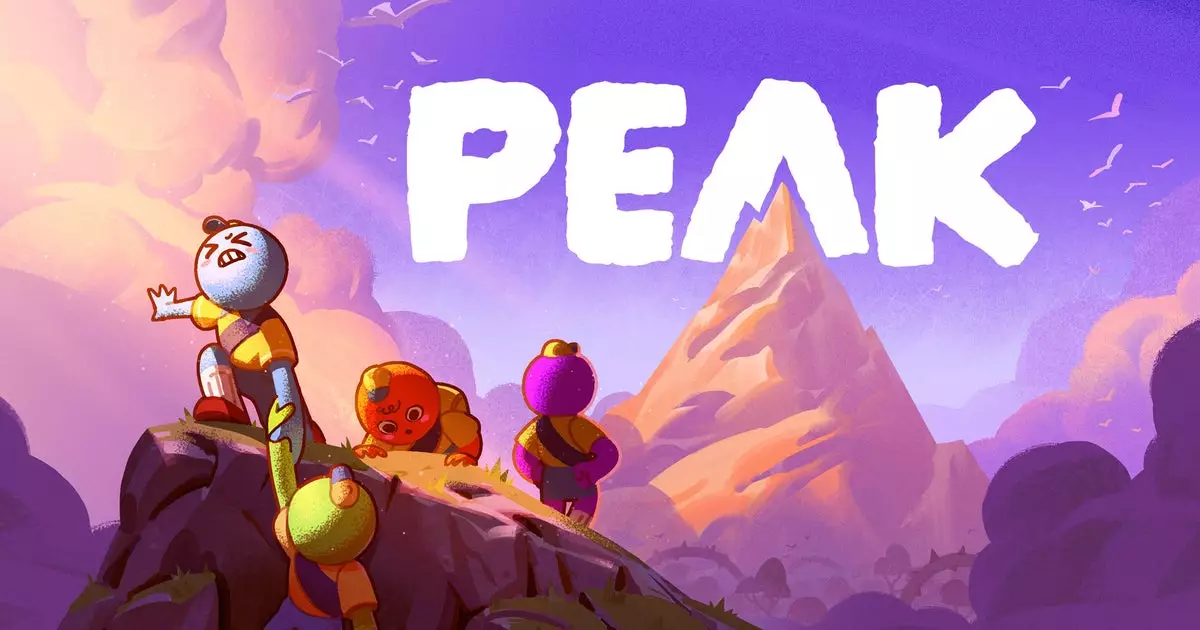“Peak” has emerged as an extraordinary co-op video game that invites players to scale mountains alongside friends, packing the experience with humor and camaraderie. But the origins of this captivating title reveal a deeper narrative about creativity, competition, and the spirit of collaboration. The notion that innovation stems from rivalry—or at least, a tinged sense of jealousy—has materialized into a triumphant example of what can transpire when developers let their imaginations run wild amid the constraints of a game jam. Rather than merely a flash in the pan or a byproduct of convenience, “Peak” encapsulates the idea that purpose and passion must coalesce to yield genuine creativity.
The Role of Jealousy in Innovation
Nick Kaman, head of Aggro Crab, framed the inception of “Peak” through the lens of jealousy—a catalyst that ignited an ambitious project after witnessing the phenomenal success of a peer’s game developed within the same time constraints. Rather than being an environmentally toxic emotion, this jealousy served as an invigorating force, pushing Kaman and his team to rethink their approach to game development. They were coming off an exhaustive, multi-year project in “Another Crab’s Treasure,” which, while successful, had drained much of their creative spirit. In contrast, the swift success of their counterparts at Content Warning made it abundantly clear that innovative ideas could flourish in mere months, thus transforming the perception of what was possible in the industry.
Yet, this experience goes beyond the mere experience of competition—it’s a reflection of the creative process. It demonstrates how a feeling many consider negative can actually be harnessed for productive ends. The idea that envy can be the seed of invention contradicts traditional narratives centered on positivity exclusively driving creativity. “Peak” is a testament to the fact that sometimes, it’s the comparative plights that push creators to embark on bold new paths.
A Diverse Team and Unexpected Venues
Forming alliances with fellow indie developers from Landfall, Aggro Crab brought their expertise to a unique environment—the bustling districts of Korea. This strategic pairing facilitated not just talent-sharing but the melding of different creative visions, ultimately crafting a richer game that absorbs influences from all involved. The choice to retreat to an Airbnb and immerse themselves in the demands of game development reflects a commitment to focus that is incredibly rare in a medium often riddled with distractions. The narrative of spending hours assembling furniture before diving into the creative process embodies a unique approach to enhancing the working environment, underscoring how atmosphere can stimulate creativity.
One can’t overlook the synergy between chaos and creativity either. Kaman whimsically described the contrasting intensity of development paired with their culinary explorations—turning mundane tasks, like eating, into brainstorming moments. This spontaneous interchange invariably nurtures creativity and fuels innovative ideas—a far cry from the rigid, formulaic structures often employed in traditional game production.
Learning from Experience and Wagering on Quality
While “Peak” owes much to its development story, the game achieves its success not merely from its origin but from the seasoned hands that shaped it. Both Aggro Crab and Landfall have previously navigated the complexities of game development and proven their capacities. Thus, while “Peak” seemed to flourish within the confines of a month-long jam, it’s crucial to recognize that this rapid creation came from a foundation of experience. The takeaway must not be that rushing guarantees success, but rather that skilled developers can exploit constrained timelines to unearth hidden potentials.
Sales figures, while impressive, should not define the essence of quality. It’s easy to mistake a game’s commercial success as a clear indicator of excellence, but true creativity transcends numbers. Engaging narratives, well-crafted mechanics, and the undeniable bonding experience amongst players characterize an enduring title—an embodiment of “Peak’s” spirit.
In the end, it becomes clear that “Peak” is not just a game; it’s a reflection of how creativity can flourish under the right conditions—where rivalry incites innovation, collaborative environments inspire enlightenment, and experience blends with fresh perspectives to create something truly extraordinary.

